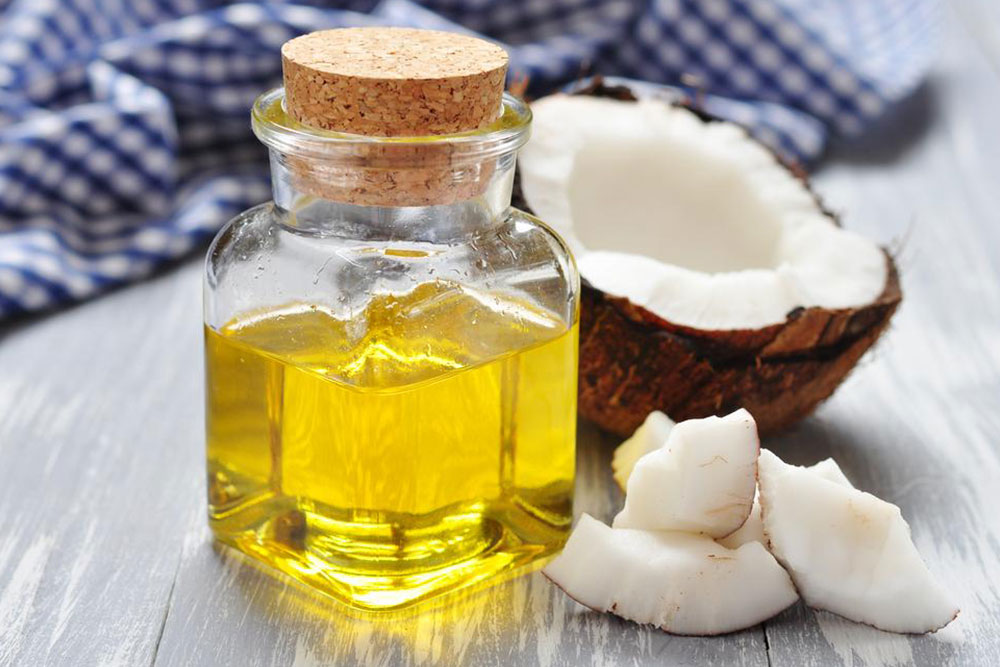Comprehensive Guide to Anti-Inflammatory Foods for a Healthy Lifestyle
This comprehensive guide explores a wide range of anti-inflammatory foods that promote a healthy lifestyle. Featuring detailed insights on fatty fish, whole grains, dark leafy greens, nuts, and more, it offers practical tips for reducing chronic inflammation naturally. Incorporate these nutrient-dense foods into your daily diet to support immune health, prevent disease, and improve overall well-being through science-backed nutritional choices.

The Essential Nutritional Choices to Boost Immunity and Reduce Chronic Inflammation
Understanding how dietary habits influence inflammation is vital for maintaining optimal health. Inflammation, a natural response by the immune system, plays a crucial role in healing injuries and defending against pathogens. However, persistent or chronic inflammation can be detrimental, leading to serious health conditions such as rheumatoid arthritis, cardiovascular diseases, and metabolic syndrome. Making informed dietary choices by incorporating specific anti-inflammatory foods can significantly help in managing inflammation levels and enhancing overall well-being. This comprehensive guide explores a variety of scientifically supported foods that promote health, reduce inflammation, and support immune function.
Chronic inflammation is often linked with a modern diet high in processed foods, refined sugars, unhealthy fats, and additives. Conversely, a diet rich in natural, nutrient-dense foods can counteract these effects by reducing inflammatory markers, improving immune response, and promoting cellular repair. Focusing on foods with anti-inflammatory properties can be a transformative step towards a healthier lifestyle, especially when combined with other healthful habits like regular exercise, adequate sleep, and stress management.
Key Food Categories to Include in Your Anti-Inflammatory Diet
Fatty Fish Rich in Omega-3 Fatty Acids
One of the cornerstone foods of an anti-inflammatory diet is fatty fish, including varieties like salmon, mackerel, sardines, and tuna. These fish are abundant sources of omega-3 fatty acids, particularly eicosapentaenoic acid (EPA) and docosahexaenoic acid (DHA). Omega-3s are potent anti-inflammatory agents that help modulate the body's inflammatory response by affecting cell membrane composition and producing anti-inflammatory eicosanoids.
Regular consumption of oily fish—ideally baked, broiled, or poached—has been shown to significantly reduce inflammation levels in the body. Scientific studies suggest that eating fatty fish at least twice a week can decrease markers of inflammation such as C-reactive protein (CRP) and interleukin-6, leading to a lower risk of heart disease and other chronic conditions. The anti-inflammatory benefits are particularly vital for individuals prone to inflammatory diseases or those with existing health concerns.
Whole Grains for Digestive and Overall Health
Whole grains such as brown rice, oats, quinoa, barley, and whole wheat products are rich in dietary fiber, which plays an important role in reducing inflammation. Dietary fiber contributes to a healthy gut microbiome and aids in lowering levels of CRP, a crucial marker of systemic inflammation. Unlike refined grains, which have been stripped of their fiber content, whole grains retain their germ and bran layers, providing a spectrum of nutrients essential for immune function.
Including whole grains in your diet can improve metabolic health, support weight management, and help prevent chronic diseases. They also promote feelings of fullness, reducing overeating and stabilizing blood sugar levels—factors linked to inflammation. Incorporating a variety of whole grains into meals—such as oatmeal for breakfast or brown rice in stir-fries—can be both delicious and healthful.
Low-Fat Dairy Products for Gut and Immune Health
Low-fat or non-fat dairy options like skim milk, yogurt, and certain cheeses are excellent sources of calcium, vitamin D, and probiotics. Probiotics, beneficial bacteria found naturally in some dairy products, are known to promote a healthy gut microbiota, which plays a pivotal role in modulating inflammation. The gut is often referred to as the body's immune hub, and maintaining its health is crucial for preventing systemic inflammation.
Yogurt with live cultures has been shown to reduce inflammatory markers and support immune health. Additionally, dairy products that are low in fat provide essential nutrients without triggering inflammatory responses often associated with saturated fats found in high-fat animal products.
Dark Leafy Vegetables: Nutrient Powerhouses
Vegetables such as spinach, kale, Swiss chard, collard greens, and broccoli are packed with anti-inflammatory compounds—including vitamin E, carotenoids, flavonoids, and sulfur-containing substances. These nutrients work synergistically to reduce oxidative stress and suppress inflammatory pathways. Dark leafy greens are also rich in iron, calcium, magnesium, and fiber, further supporting immune function and cellular repair.
Regular consumption of colorful, nutrient-dense vegetables is associated with a lower incidence of chronic inflammatory diseases. Incorporate these vegetables into salads, smoothies, soups, and stir-fries for maximum benefit.
Nut Riches: Healthy Fats and Antioxidants
Almonds, walnuts, cashews, and other nuts are excellent sources of healthy monounsaturated and polyunsaturated fats, including omega-3s in walnuts. They are loaded with antioxidants such as vitamin E, selenium, and phytochemicals that combat oxidative stress—a key driver of inflammation. Nuts also contain fiber, protein, and magnesium, which further support immune health and cellular repair processes.
Daily nut consumption has been linked to reduced levels of inflammatory markers and a decreased risk of cardiovascular disease. Snacking on a handful of raw or lightly roasted nuts is a simple way to incorporate these benefits into your diet.
Plant-Based Proteins: Soy and Legumes
Soy products like tofu, tempeh, edamame, and soy milk contain isoflavones—plant compounds associated with anti-inflammatory effects. These compounds have been shown to lower CRP levels and reduce markers of inflammation, especially in populations at risk for inflammatory conditions.
Minimally processed soy foods are preferable to highly processed options. Including soy-based proteins in your meals provides essential amino acids while supporting inflammation reduction and hormonal balance.
Pepper Varieties and Spices for Natural Pain Relief
Spicy peppers such as cayenne and chili peppers contain capsaicin, a bioactive compound widely recognized for its analgesic and anti-inflammatory properties. Capsaicin can inhibit pain signals, reduce swelling, and improve circulation when used topically or incorporated into meals. This spice is a common ingredient in natural pain relief formulations and can enhance flavor without added sodium or unhealthy fats.
Tomatoes and Lycopene for Reducing Body-Wide Inflammation
Tomatoes are rich in lycopene, a powerful antioxidant that has demonstrated the ability to decrease inflammation markers, particularly in lung tissue and skin. Cooking tomatoes enhances lycopene bioavailability, making tomato sauces, soups, and stews especially effective in combatting inflammation. Including a variety of tomato-based dishes in your diet can contribute to healthier immune responses and tissue repair.
Beets and Betalains: Cellular and Heart Health
Beets contain betalains—plant pigments with potent antioxidant and anti-inflammatory effects. These compounds help combat oxidative stress and may support liver detoxification. Beets and beetroot juice are associated with decreased inflammation and improved cardiovascular health thanks to their high fiber, folate, and phytochemical content.
Ginger and Turmeric: Golden Spices with Powerful Benefits
Ginger and turmeric have long been used in traditional medicine for their anti-inflammatory effects. Turmeric's active compound, curcumin, works by regulating inflammatory pathways, particularly NF-kappa B, a key mediator in inflammation. Ginger contains bioactive compounds like gingerol, which help soothe gut inflammation and reduce muscular soreness. Both spices can be incorporated into teas, curries, smoothies, and baked dishes for added health benefits.
Garlic and Onions: Natural Anti-Inflammatory Foods
Garlic and onions are rich in organosulfur compounds and flavonoids such as quercetin, which have been shown to inhibit inflammatory mediators in the blood and tissues. Regular intake can support joint health, reduce inflammation-related pain, and improve overall immune resilience. These aromatic vegetables are versatile ingredients that enhance flavor while providing health benefits.
Olive Oil: The Heart-Healthy Oil
Extra virgin olive oil, a staple of the Mediterranean diet, contains monounsaturated fats and polyphenols that have demonstrated significant anti-inflammatory effects. Olive oil consumption is associated with reduced risk of cardiovascular diseases, improved endothelial function, and lowered inflammatory markers. Use olive oil in salad dressings, drizzles, and baking to incorporate its health benefits into your daily routine.
Berries: Fruitful Sources of Antioxidants
Blueberries, strawberries, blackberries, and other berries are rich in anthocyanins—potent antioxidants that help neutralize free radicals and mitigate inflammation. Berries also contain vitamins C and K, fiber, and phytochemicals that support immune function and cellular integrity. Regular berry intake is linked with improved heart health and cognitive function, making them a delicious addition to cereals, smoothies, and desserts.
Conclusion: A Holistic Approach to Reducing Inflammation
Adopting an anti-inflammatory diet involves more than just adding these foods; it requires a holistic approach encompassing balanced eating habits, lifestyle modifications, and regular physical activity. While incorporating the foods listed can significantly reduce chronic inflammation, individual needs may vary. Consulting with healthcare professionals or registered dietitians can help tailor a plan specific to your health status and goals.
By making intentional food choices, maintaining a healthy lifestyle, and avoiding inflammatory triggers like excessive processed foods, you can enhance your immune resilience, prevent chronic illness, and enjoy a vibrant, healthy life. Remember, small but consistent dietary shifts can lead to profound long-term health benefits.





